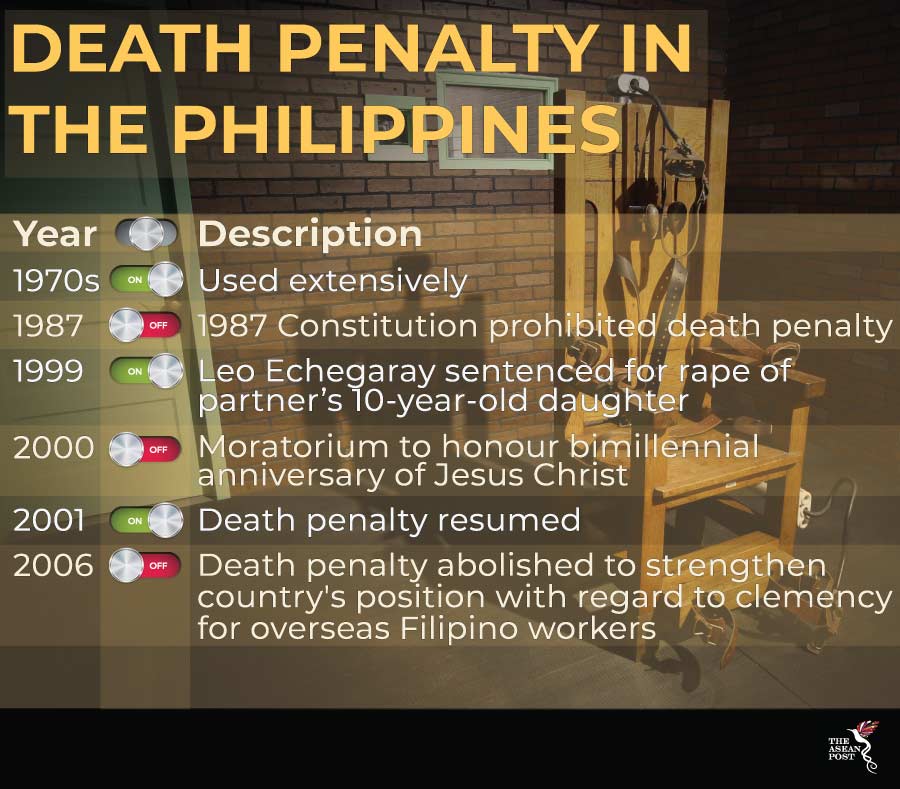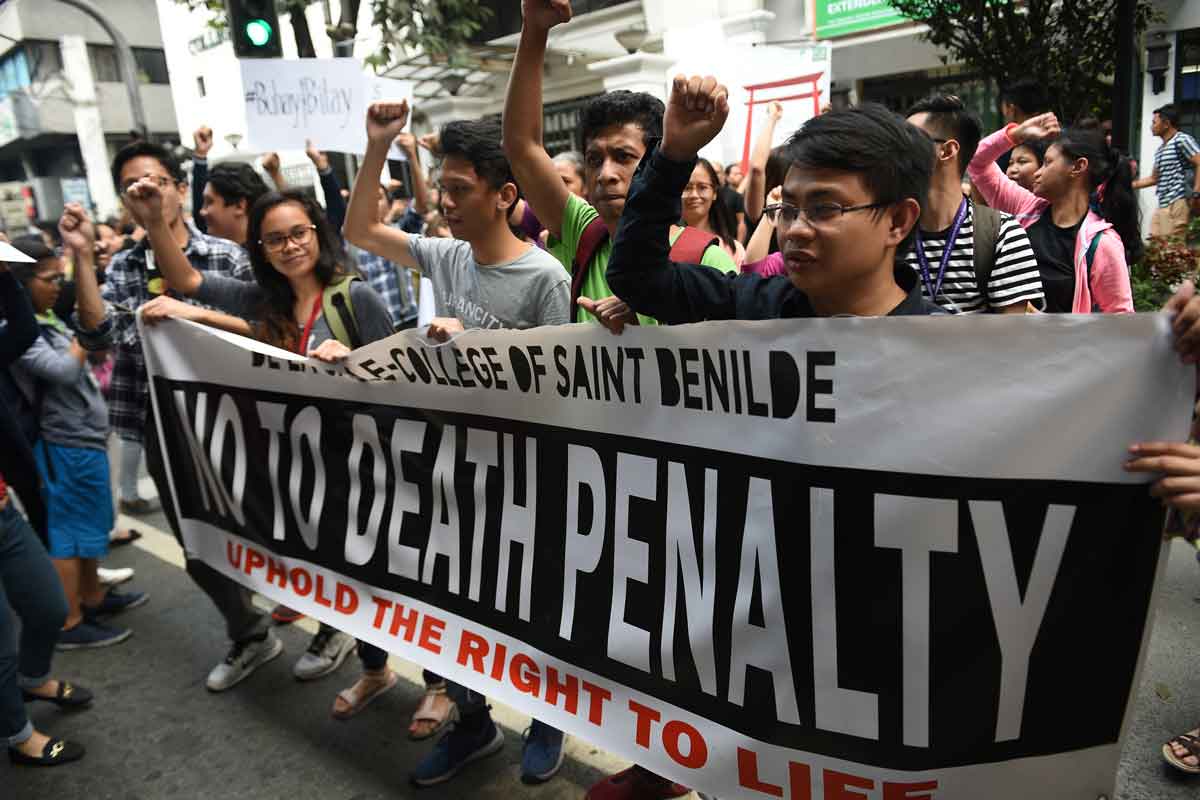Duterte Youth, a right-wing youth organisation supporting the administration of Filipino President Rodrigo Duterte, recently promised that it would push for the revival of the death penalty for heinous crimes if it wins a seat in the House of Representatives in the coming 2019 midterm elections. While human rights advocates are certainly against the revival of the death penalty in the Philippines, there is certainly good reason why the Duterte Youth would promise Filipinos such a thing.
The fact of the matter is that it is more than likely that a good portion of Filipinos are rooting for the revival of the death penalty. This was seen following Duterte’s previous bid to revive the death penalty – a bid he lost back in 2017 when the move stalled in the Senate. Nonetheless, a survey by a public opinion polling body in the Philippines called Pulse Asia revealed that many Filipinos were in favour of the revival.
In May 2017, it was reported that while the figure was lower (67 percent) compared to the level of support the death penalty had received in July 2016 (81 percent), strong support for the death penalty continued to be expressed by most Filipinos.
A possible means to explaining this phenomenon is the ever-growing number of prisoners in the country’s jails for long periods of time and the high cost of keeping them there. Assistant professor Raymund Narag at the Department of Criminology and Criminal Justice, Southern Illinois University Carbondale; has even suggested that these unusually long periods of pre-trial detention contributed indirectly to the appeal of vigilante justice and Duterte’s war on drugs.
Narag surmises that the high cost of keeping inmates in prison per year (US$1,375 per inmate) has been a contributing factor to what has edged Filipinos towards favouring vigilante justice.
But if it explains the appeal of vigilante justice, then it also explains the appeal of the death penalty, as more prisoners being executed means fewer prisoners in jail. This, however, is only one possible reason why Filipinos favour reviving the death penalty.
Carousel of death
The Philippines is the only ASEAN country aside from Cambodia which has abolished the death penalty. This, however, has not been an easy road as capital punishment has been on and off throughout the country’s history.

Under former president, Ferdinand Marcos, the death penalty was extensively used up until after Marcos was removed from office in 1986. The newly drafted 1987 Constitution prohibited the death penalty but allowed Congress to reinstate it "hereafter" for "heinous crimes"; making the Philippines the first Asian country to abolish capital punishment.
Later, however, President Fidel V. Ramos promised during his campaign that he would support the re-introduction of the death penalty in response to increasing crime rates. Executions resumed in 1999, starting with Leo Echegaray who was accused of the April 1994 rape of the 10-year-old daughter of his live-in partner. Echegaray was put to death by lethal injection under Ramos' successor, Joseph Estrada, marking the first execution after the reinstatement of the death penalty.
Following a personal appeal by his spiritual advisor, Bishop Teodoro Bacani, Estrada called a moratorium in 2000 to honour the bimillennial anniversary of the birth of Jesus Christ. Executions were resumed a year later.
In 2006, then President Gloria Macapagal-Arroyo enacted Republic Act Number 9346 that abolished the death penalty. Arroyo at the time was concerned that having the death penalty as part of the country’s judicial recourse would weaken the country’s position in asking for clemency for overseas Filipino workers who were on death row abroad.
Enter Duterte
During the 2016 election, then presidential candidate and frontrunner, Davao City mayor Rodrigo Duterte, campaigned to restore the death penalty in the Philippines. During the "Yes or No" segment of the second presidential debate on 20 March 2016, Duterte and Senator Grace Poe were the only candidates who favoured the resumption of the death penalty in the country.
Duterte won the election in May that year and it has been reported that he wants capital punishment for criminals involved in illegal drugs, gun-for-hire syndicates and those who commit "heinous crimes" such as rape, robbery or car theft where the victim is murdered. Meanwhile, Poe has stated that capital punishment should apply to criminals convicted of "drugs and multiple crimes where involved people can no longer be rehabilitated."
In December 2016, the bill to resume capital punishment for certain "heinous offenses" swiftly passed out of Committee in the House of Representatives; it passed the full House of Representatives in February 2017. However, the law reinstating the death penalty stalled in the Senate in April 2017, where it had apparently not garnered enough votes to pass.
Whether the Duterte Youth can live up to its promise of reinstating the death penalty remains to be seen. However, Filipinos must remember that there is always good to be had in some form of check and balance in government.
Related articles:
